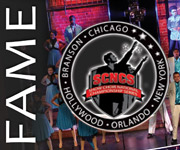
One of the first and foremost ways to a successful arrangement is good communication between the director and arranger. Directors should find out the individual arranger’s best method of how they get the ideas into a score. Personally, I love a recording of cuts. These cuts do not have to be clean—there may be breaks between the ideas and/or speaking over the music. It’s my job to sew those ideas together.
Another and most common means of conveying ideas is a lyric sheet with highlights and written notes. This strategy works very well, especially if the notes include time stamps from the recording. It’s also very helpful to include the YouTube link or mp3 file so the director and the arranger are working with the same version of the song.
After the ideas are conveyed and the arranger has the materials, many other aspects of the transaction still need to happen, including:
• Sharing expectations of music delivery deadlines
• Providing the approximate ranges each part sings
• Providing the appropriate time length of each arrangement
• Explaining how the school or program processes payments (PO, requisition, board meeting, etc.), what paperwork is needed, and whether deposits are required
• Discussing when the band parts are needed
• Confirming whether sound files fare needed for rehearsal, reference, and/or performance track
• Discussing licensing expectations (how long for approvals, payments, etc.)
• Agreeing on how edits will be handled
To expand on the list above: once the vocals, piano and drum line are written, I consider this a preliminary score that a director can use to rehearse; band parts are always written later. This process offers more time dedicated to writing the arrangements, so students can start rehearsals while the director can have time to ask for any edits. My policy is that each arrangement is allowed one edit at no charge, and this edit may include several changes. If a director wants to make a few changes, I suggest to them to make notes, then contact me when they are ready. There is a fee for any edits after that.
You’ve probably heard this dozens of times, but feel free to think outside the box! I encourage directors to do something that turns heads and makes listeners—particularly the judges—lean in. Some fun ideas along these lines include these: Take a popular rock song and have it arranged as a ballad. Take a famous ballad and have it done in a completely different style like Country or Latin Pop. Rework a song in a swing or big band style, and think even beyond that.
Sometimes directors give total discretion to the arranger for how the arrangement will turn out. Sometimes I will get into the piece and then send them an mp3 of how it is laying out, especially if I’ve added creative elements. For original arrangements, I always send progress mp3s, and I may also send written scores, as well. In these ways, the director knows exactly what they are getting throughout the creative process. Several times, I have missed their expected mark, and finding out early helps both of us tremendously.
During these times when budgets and groups are rebuilding, directors can actually save money in a few ways. Instead of a medley that can have gigantic licensing fees, directors might consider a single-titled song but have surprises built in, such as key changes, vocal splashes and an unexpected kicking instrumental break to keep the interest going. Directors may also consider breaking into a different style.
One other option that can save a lot of money and time is purchasing show choir arrangements online. Yes, you heard that correctly! I recently signed up with ArrangeMe.com, a website by Hal Leonard that allows arrangements to be published and sold on Sheet Music Plus and Sheet Music Direct. Most of my existing charts are being updated and uploaded so that directors can purchase competition show choir charts at stock music prices, with the licensing included in the purchase. With this option, directors will not need to wait on approvals or pay extra licensing fees. If directors find a title on the Music Arrangement Services website, the chances are very good that I can get that arrangement online. This option is excellent for beginning and building show choirs. Simply go to the two music selling sites and search “Music Arrangement Services, Inc.” and you will find many arrangements already available. Thank you to all the directors who keep show choir the wonderful industry it is!











